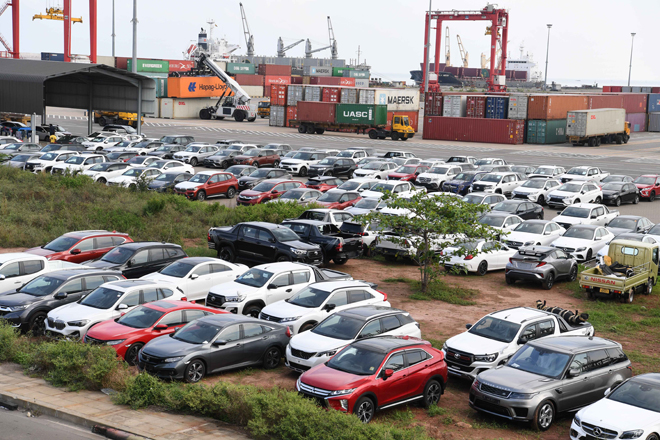Sri Lanka’s vehicle registrations in October hit a record low across the board, including all commercial vehicle categories, due to the economic impact of the second wave of COVID-19 outbreak and import restrictions on personal vehicle imports.
There were 4,236 units of vehicles registered in October this year, a drop from 29,659 units registered in October last year, according to data compiled by JB Securities, a Colombo-based research firm.
After total vehicle registrations reaching pre-pandemic levels of 32,123 units in June driven by pent-up demand, Sri Lanka’s vehicle registrations continued to slide mainly due to import restrictions on personal vehicle imports, which was further worsened by the second wave of COVID-19 outbreak in early October.
The three-wheeler registrations plunged to 19 units in October, down from 93 units in September and 1, 039 units a year ago.
Similarly, registration of two-wheelers recorded 3,128 units in the month significantly down from 9,020 in September and 21,918 registrations one year ago.
JB Securities Managing Director Murtaza Jafferjee said the island is currently witnessing a dirigiste economy that policy makers are justifying due to COVID19 – vehicles have been categorised as being non essentials.
"In the same breadth in the budget for 2021 there is a large allocation towards further expanding the rural road network and new expressways – I find it difficult to reconcile the two conflicting policy objectives."
He says if the argument is that there is already a sufficient stock of vehicles in the country it does not imply that everyone has a vehicle.
"If the current ban on vehicles is extended to the medium-term one has to question the merits of this policy in terms of equity for used vehicle prices have significantly gone up affecting affordability. Transportation is a derived demand, it’s an intermediate activity either in consumption or production so by driving its cost up by constricting the vehicle stock it will further aggravate the current economic crisis. Under the current vehicle ban, even 2 wheelers are banned – how is this justifiable?"
Further in the years 2017 and 2018 the treasury collected approximately LKR 200 billion in revenues via taxes on vehicles, it came down to approx LKR 140 bn in 2019. This year the figure will probably be less than LKR 50 bn – can we afford to forgo a highly collectible revenue (border tax) in the midst of a pandemic.
Sri Lanka has had repeated balance of payments crisis since independence,
Jafferjee says.
"The reasons for this is there is excessive domestic absorption (too much of consumption and investment) and weak net export growth. In the past few years the funding deficit from the current account + FDI has been around USD 1 bn per year, this year it will be marginally lower,"
"How should this be made a surplus?"
Domestic absorption has to be controlled by tighter monetary policy (higher real interest rates) and fiscal policy (more broad based taxation) NOT by a group of bureaucrat deciding what is good or bad for the economy and imposing subsequent policy for their biases will effect the choices they make impeding the economic freedoms of citizens.
The direct and indirect import content of a building is very high – are buildings considered a good and vehicles a bad ? It would be far better to increase taxes and real interest rates and permit citizens and business to decide as to what they want to invest and consume.
He also says net exports have to be increased by
- Substitution of one type of import by another (e.g. LNG for liquid fuels).
- Import substitution (especially energy – more renewables, fertilizer, dairy),
- Increase the exports of our current export basket through productivity improvements - avg coconut tree produces 62 nuts, best practice trees are close to 100, replant new tea bushes in the plantations that on average said to be 60 years, etc.
- Create new export industries that require tacit knowhow via the FDI and diaspora channels.
Finally, he quotes: Einstein is supposed to have said “Insanity is doing the same thing over and over and expecting a different result” – surely we can do better.

